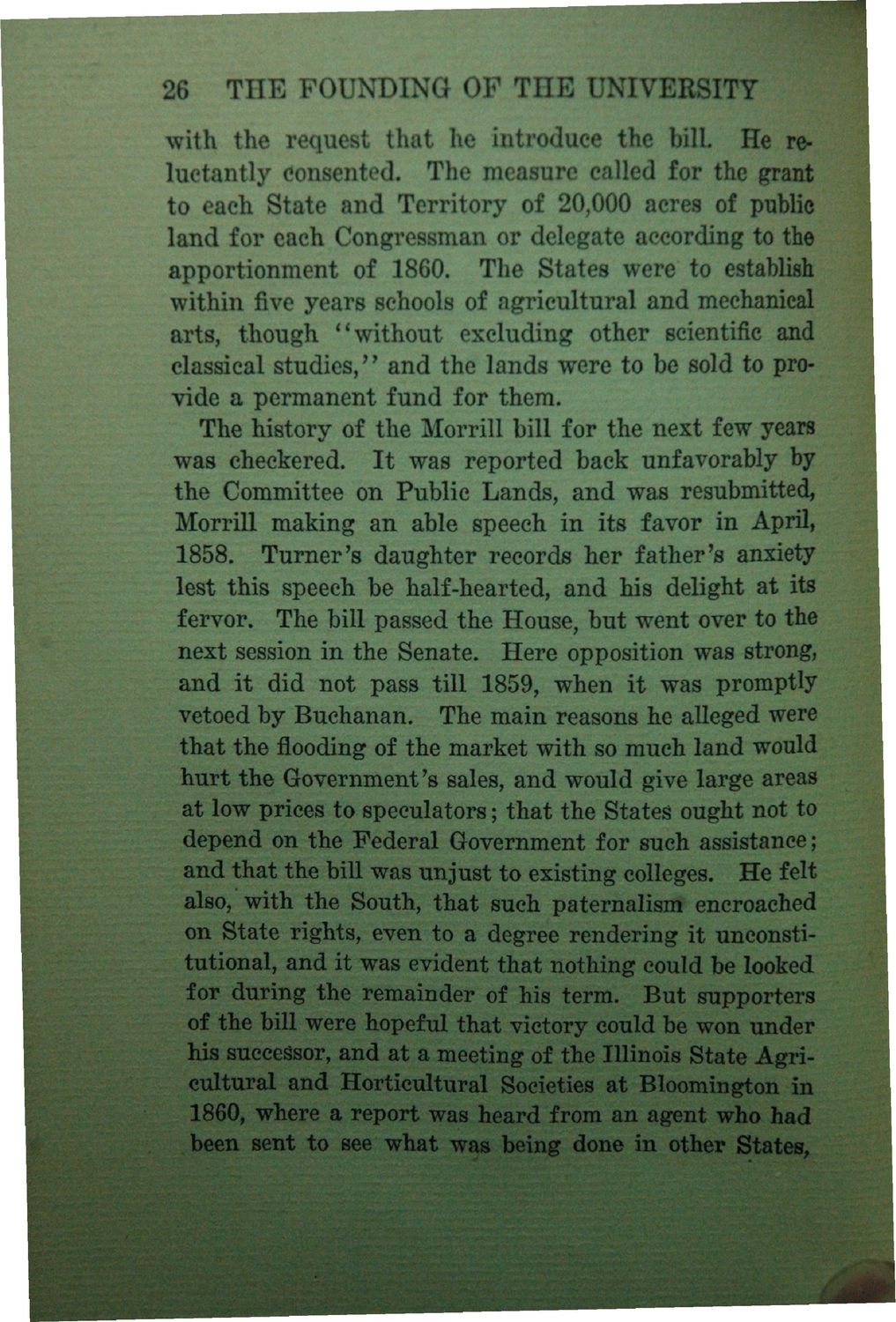| |
| |
Caption: Book - History of the University (Nevins)
This is a reduced-resolution page image for fast online browsing.

EXTRACTED TEXT FROM PAGE:
26 THE FOUNDING OP THE UNIVEBSITY with the request that he introduce the bilL He reluctantly consented. The measure called for the grant to each State and Territory of 20,000 acres of public land for each Congressman or delegate according to the apportionment of 1860. The States were to establish within five years schools of agricultural and mechanical arts, though "without excluding other scientific and classical studies," and the lands were to be sold to provide a permanent fund for them. The history of the Morrill bill for the next few years was checkered. I t was reported back unfavorably by the Committee on Public Lands, and was resubmitted, Morrill making an able speech in its favor in April, 1858. Turner's daughter records her father's anxiety lest this speech be half-hearted, and his delight at its fervor. The bill passed the House, but went over to the next session in the Senate. Here opposition was strong, and it did not pass till 1859, when it was promptly vetoed by Buchanan. The main reasons he alleged were that the flooding of the market with so much land would hurt the Government's sales, and would give large areas at low prices to speculators; that the States ought not to depend on the Federal Government for such assistance; and that the bill was unjust to existing colleges. He felt also, with the South, that such paternalism encroached on State rights, even to a degree rendering it unconstitutional, and it was evident that nothing could be looked for during the remainder of his term. But supporters of the bill were hopeful that victory could be won under his successor, and at a meeting of the Illinois State Agricultural and Horticultural Societies at Bloomington in 1860, where a report was heard from an agent who had been sent to see what was being done in other States,
| |